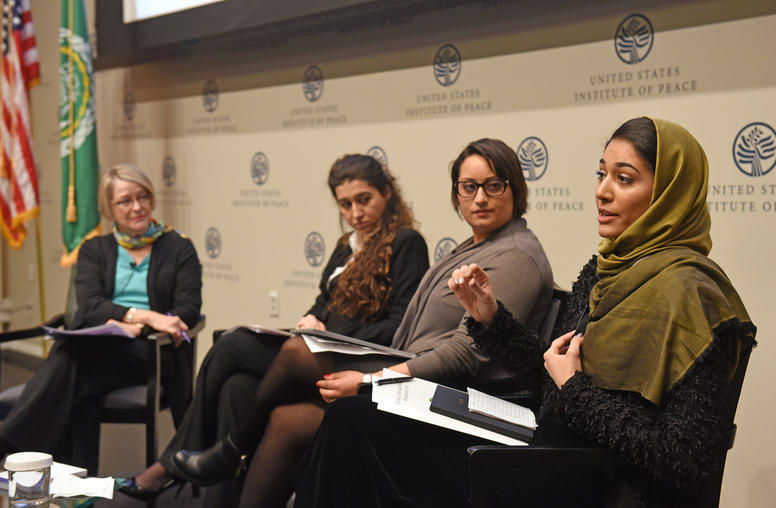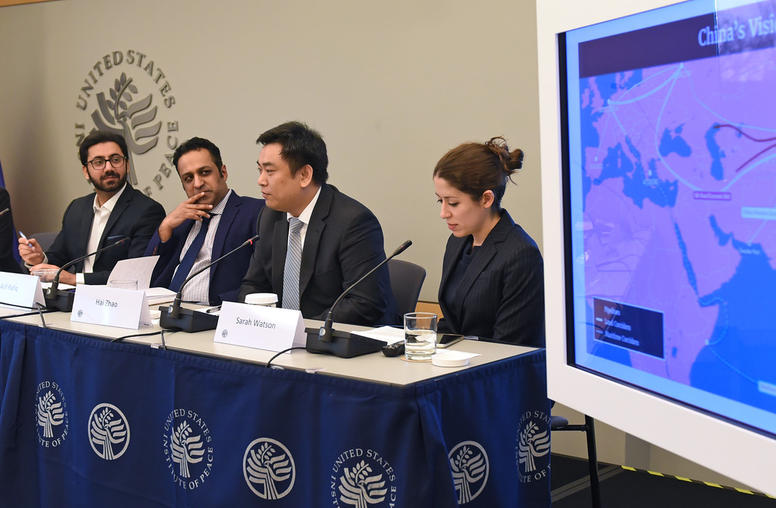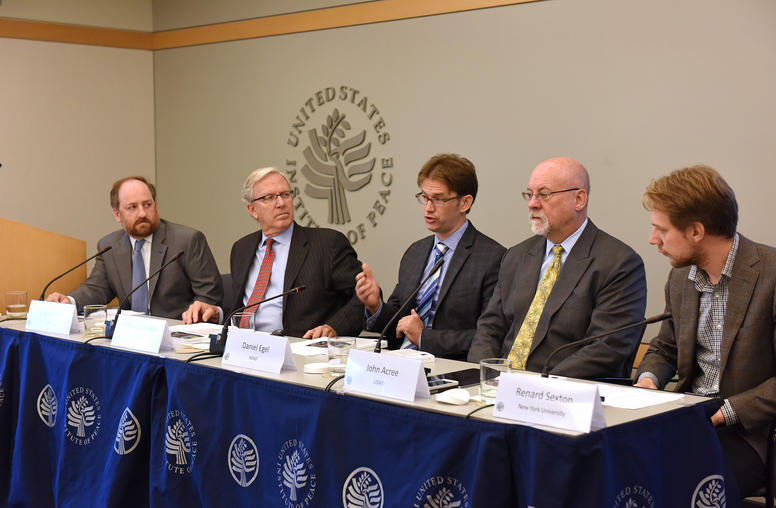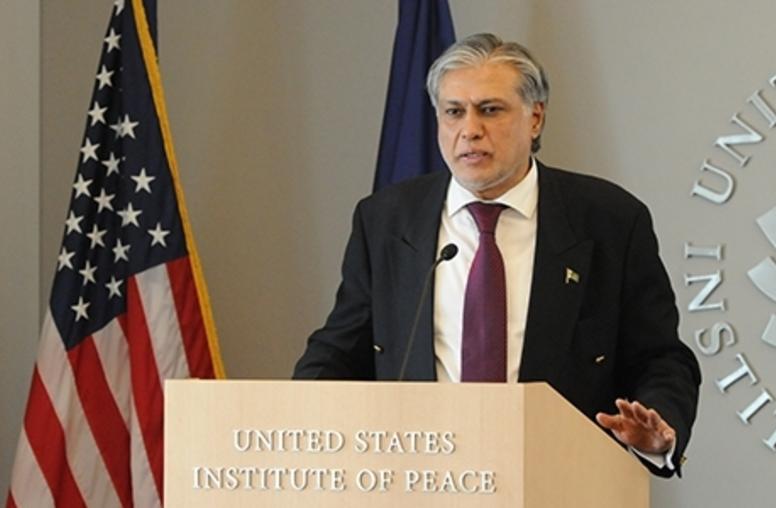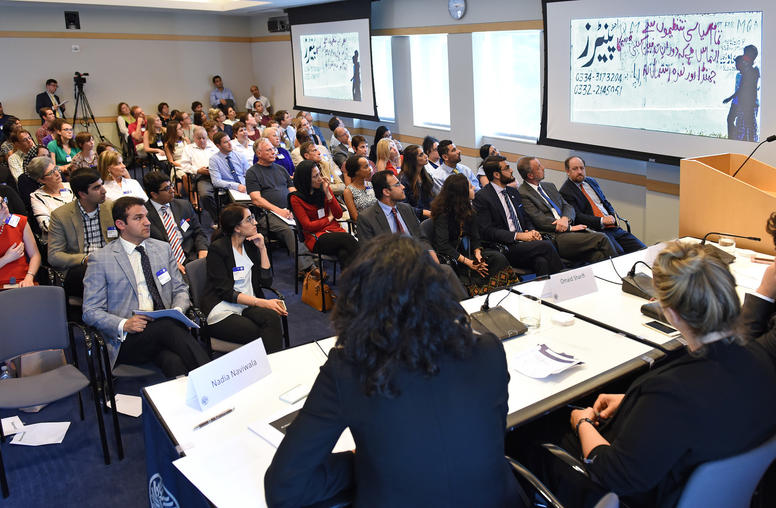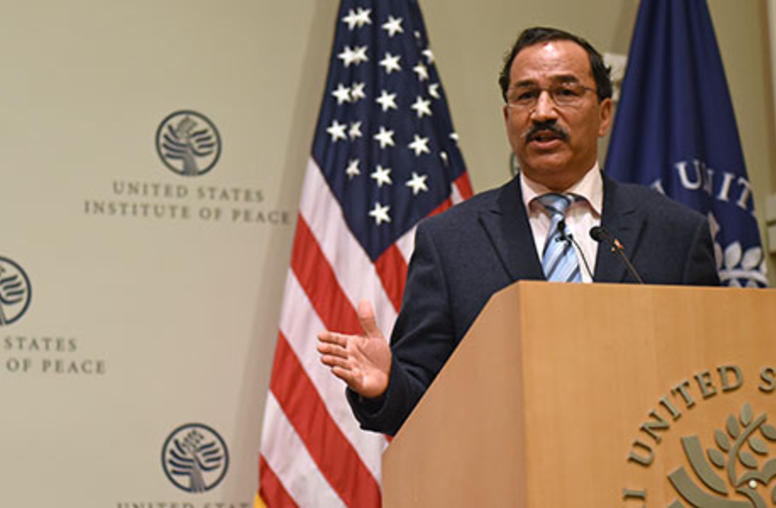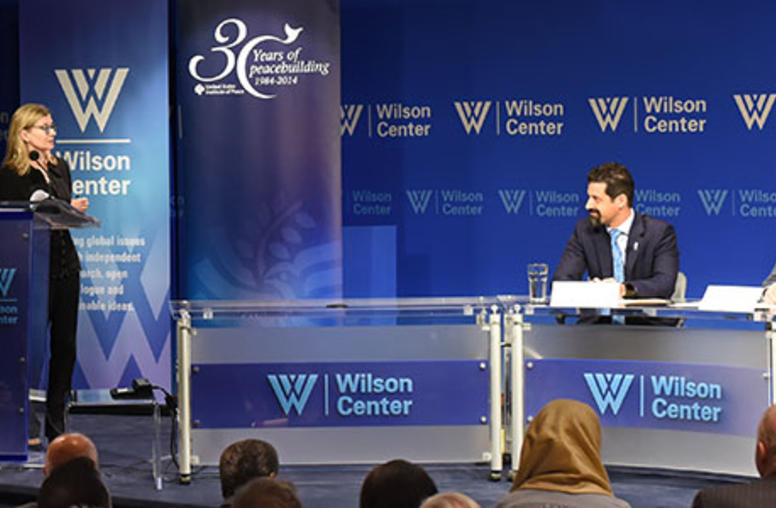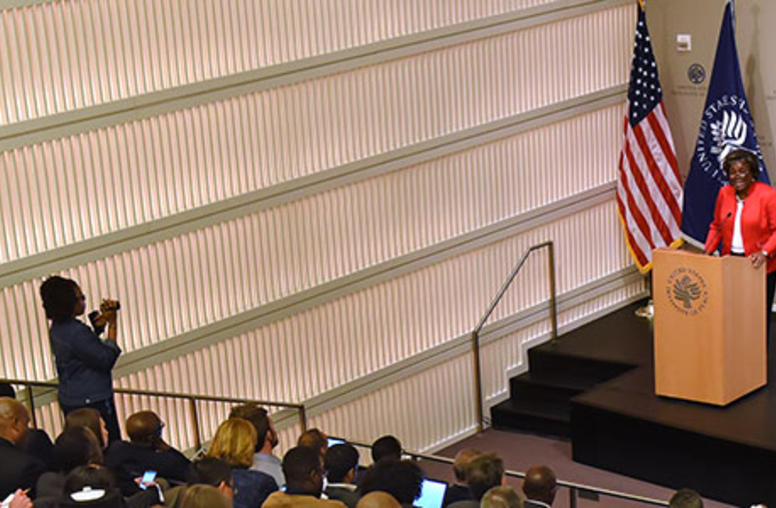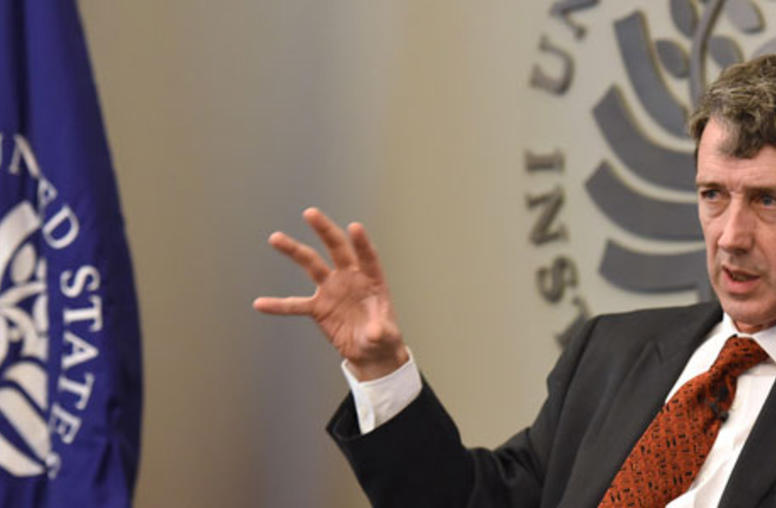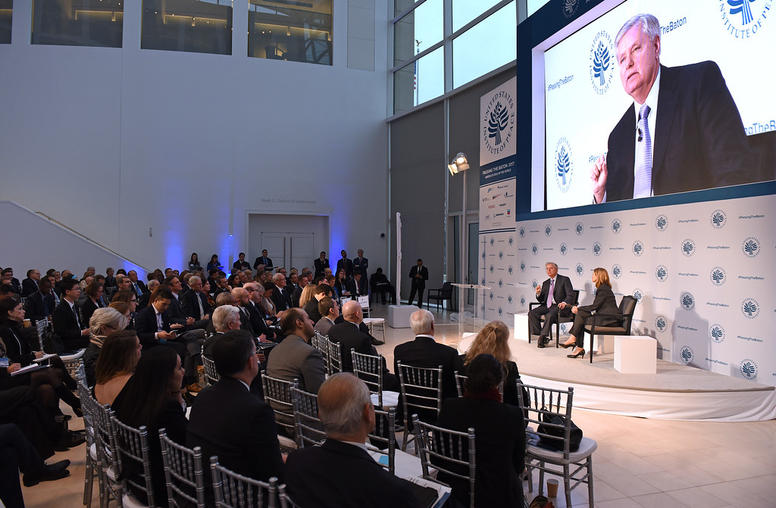
Passing the Baton 2017: America's Role in the World
As the United States prepared to inaugurate its 45th president, the U.S. Institute of Peace again held its Passing the Baton conference—a review, during the transition between administrations, of global challenges confronting our nation. USIP convened Cabinet-level and other senior foreign policy and national security figures from the outgoing and incoming administrations as part of two days of meetings January 9 and 10. They were joined by top officials from previous administrations, thought leaders and other foreign policy experts.
